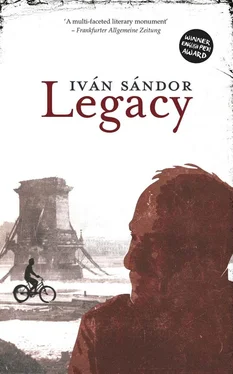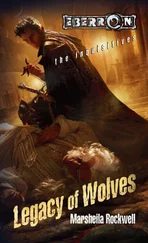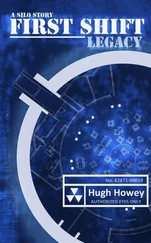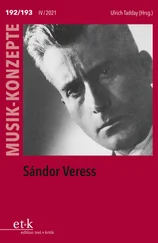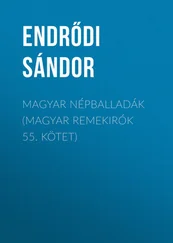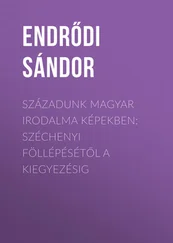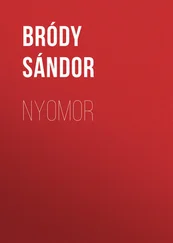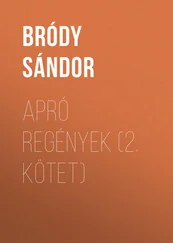I don’t tell Györgyi that no more than fifteen years after the crematorium had been in operation I had asked a young woman of twenty-five — who was selling small collections of photographs labelled ‘Acht Fotos KHZ Ravensbrück’ (‘Eight Photographs of Ravens brück’) for two marks at the entrance to the camp — where she lived, and she said in the next village.
That village was 800 metres from the camp.
Did your parents live here during the war?
Yes, they did.
What did they say about you getting a job here?
Nothing.
Did you ever ask them what they recall of how the camp operated?
They knew nothing about it.
Have you heard about it from other people?
Nobody.
But it’s only half a mile away.
No, nothing from anybody.
Didn’t they see the smoke from the crematorium chimneys?
I’ve already said, they knew nothing …
Eight photographs:
A transport to Auschwitz
Prisoners at work
Women building roads
A view of the camp
The Appellplatz
The crematorium
A firing squad
The memorial by the lake
I bought a packet of the eight photographs.
We might have spent an hour inside there, Györgyi says. The Appellplatz was muddy. It was drizzling, and anyone whose coat was hooded pulled that over their head. One of my colleagues said we should go because the kids were freezing. As we were heading for the memorial, past the artificial lake, one of the girls came over to me and linked arms with me, tears in her eyes. I didn’t know what to say to her, Györgyi says. It wasn’t easy to stay quiet, but it would have been even more difficult to say something. We set off the two of us to walk round the lake, and when we were far enough from the others she stopped. Miss, one of the boys said that this was only put up at a later date, that there’s no truth in the whole story.
Györgyi is speaking in an icy voice. I cannot imagine the tone in which she replied to the teary-eyed girl. Her look is the same as Mádi Róbert’s when she said what, on the morning of 15 November 1944, I could not have seen from the other room. Yes, Györgyi’s look is familiar, like the look of those who speak about rationally incomprehensible events in similarly frosty tones. I told the girl that my mother and grandmother had been brought here, and my grandmother and a woman friend of my mother’s had been incinerated in the small whitewashed building with its two chimneys and five viewing apertures with shutters over them.
The group sets off towards the waiting special coach.
Go, says Györgyi to the girl, or you’ll miss the coach.
She waits until everybody has boarded.
She waits in order to keep the others waiting.
The two Germans at the next table pay their bill.
Would I relate to her my recollections of the camp?
My hosts, or rather my East German escorts it would be more accurate to call them, did not budge from my side. I would have liked to have been left alone for at least a few minutes, but they did not budge while I measured the span of the opening to the furnace of the crematorium. It was just wide enough to swallow up a body lying horizontally. The Appellplatz was muddy on that occasion, too. It had been raining then as well, and I caught a bit of a cold.
And did you write about it?
No. What I felt at the time was so insignificant. I caught a slight cold, my throat tickled. It may well be that if I had not coughed and worried about not being able to change my sodden socks until the evening I would not have written about it even then, because I could not find the right words in which to record it. Although I did write down that much.
What do you mean, that much?
The fact that I could not find the right words in which to record it.
This is the right moment for me to slip across the table a folder in which I have placed a typescript. It is a novel, I say, the chapters that have been completed so far.
Her look is that of an accomplice; she feels she has become a part of something to which it may be hard to pin a name but involves the two of us.
We leave the Gellért’s tearoom — I’ll write up what happened next later — we then go out in front of the entrance to the hotel.
We start to walk in step with one another. When we reach the pedestrian crossing to Szabadság Bridge I look back. Before my eyes there appear trestles, barriers made of rolls of barbed wire, the cannon guarding the head of the bridge and the hotel.
Györgyi also looks back. I make no mention of what I had just imagined, as I sense from her look that something is being brought to mind for her as well, albeit something different. We owe each other the courtesy of at least leaving the past the way in which it lives on.
At the Erzsébet Bridge, the next bridge upriver, I remark that it was across here that the column we were in was driven — I deliberately choose the word, smiling meanwhile — to the Óbuda Brickworks. It’s possible that her mother and grandmother were also in it. This was where Father had ticked me off for looking right because the Arrow Crossers were bawling at us not to look, meaning not look at the blown-up statue of Gyula Gömbös.
The Danube is grey; there are no lights. Still, the Parliament building is easily visible upriver on the opposite bank, looking like a piece of the décor, as does the string of hotels on the Pest riverbank. Their roofs slip on to the roofs of the houses behind, the city being concentrated on a single spot as if the buildings were their own replicas. As if I were not seeing the city in which I have lived my whole life, a city whose streets and squares are well known to me, but a stage set, one viewed from the wings rather than the auditorium. Maybe my eyesight is changing, as not long ago I was knocked down near here by a cyclist, I say. Györgyi is clutching the file that I passed to her in the tearoom under one arm. When she starts to read it at home she will get to the part that describes that it was exactly where we were standing, perhaps fifty metres from the Buda end of Margit Bridge, that the procession from the brickworks that was destined for the Dohány Street Synagogue was driven on to the footbridge erected over the swirling river after the old bridge had been blown up. Perhaps she will think about where her mother and grandmother and mother’s friend can have been in the column at the time when it was sent off towards Hegyeshalom.
She remarked during the walk that she still meant to drop into school, but already two number 17 trams had departed from the terminus without her getting on.
Was it a good idea for me to make that journey?
It is almost as if that was the question she were posing to herself, but it seems to me that it is important she does so in my presence.
She prepares to say farewell and yet allows a third tram to depart.
She was ashamed that when they came away from the Appellplatz she was preoccupied more with her umbrella, because it chose there, of all places, to misbehave, is the way she puts it.
I quite understand, I say; it was also rainy when I went there.
We are standing quite close to one another at the tram stop. She gives me a grateful look for also speaking about the rain.
In a dream the packet of snaps bought many years ago at the entrance to Ravensbrück is stolen from my room, which I had locked myself from the inside. Györgyi shows up and together we search my drawers, together open and close my accumulated files. Györgyi meanwhile reads a number of my notes in an old letter; we cannot find the pictures, and their loss makes me see the freshly whitewashed walls and two chimneys of the crematorium more sharply.
I write the dream down after waking up at dawn. I continue that I am standing with Györgyi at the terminus of the number 17 tram. She will later read the typescript I passed her and go out to her mother’s grave in the cemetery where she had also had her grandmother’s name inscribed on the gravestone. Her mother, I write, had not wanted her mother’s name to be preserved on the memorial to the martyrs, and she had never explained to Györgyi why not, but before she died she had asked that when it came to setting up a gravestone for herself then let her grandmother’s name also appear on it. She had specified: ‘Here is preserved the memory of Mariann Rajna, 1906–1944, killed at Ravensbrück’. Györgyi does not, however, have her father’s name carved on the gravestone, as she knows nothing about him, and he might still be alive somewhere abroad.
Читать дальше
